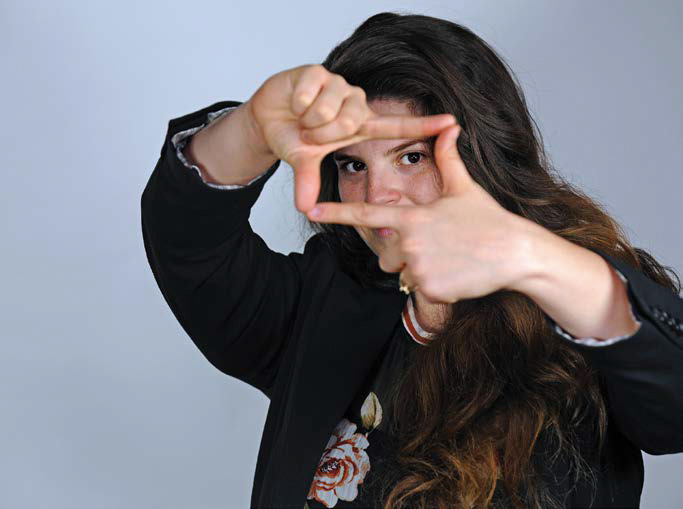Stranger Than Fiction
Jesseca Ynez Simmons is among the 89 new full-time faculty members who began teaching at UD this fall. The assistant professor of communication brings to campus experience making traditional and experimental documentaries, most recently as filmmaker-in-residence at Northwestern University. She once set a piano on fire for a film, which necessitated an expansion beyond her usually compact and agile three-member crew. “Four were on camera and three on fire extinguisher duty — you can only burn a piano once,” she said.
We tap into Simmons’ experience to learn more about her craft coming off one of the hottest summers for documentary films in recent years.
Documentaries such as Won’t You Be My Neighbor? and RBG brought in millions at the box office this summer. What’s the secret to having a hit?
Tim Horsburgh, director of communications and distribution at Kartemquin Films, told me making a film is 49 percent of the work, and getting it seen is 51 percent. It’s important to engage a lot with your audience, think about who needs to see your film and start a relationship well before the film is finished so you already have a rallying cry.  And to have a really good story?
And to have a really good story?
Yes — a connection. What initially drew me to documentary is I wanted to use real, live people’s stories to help real, living people. I studied political science as an undergrad and wanted to become a lawyer, but then something just flipped in me. It’s still the same aspiration but a totally different way to achieve that goal.
What do you look for in documentaries?
In Encounters at the End of the World, the filmmaker goes to Antarctica and asks, “Who’s here?” He ties it together in a way that makes life so beautiful. Then there’s a scene with a scientist studying penguins, and one penguin won’t stay with the group. It’s so cute and quirky. And then the scientist says, “We turned him around but he keeps going in that direction. We can’t explain why — that’s all mountains. He’s walking to his death.” Oh my gosh — penguin suicide. With documentaries, you get exposed to things you never would have expected.
What’s one thing you want your students to learn?
It’s OK for documentaries not to look like 60 Minutes. It’s OK to employ experimental techniques — reenactments, staged set-ups, animation.
Do you use those techniques in your latest film, I Can Only Be Mary Lane, about an 82-year-old Chicago blues singer?
She’s such a straightforward person and her blues is fairly traditional. That’s what makes her so great — she’s one of the last blues singers who came up through the Great Migration. I felt like I shouldn’t mess with that and get too creative. I just want to let her tell her story and let her sing .
What’s one thing you’ve learned from all the documentaries you’ve watched this summer?
We all have Google; we can find things out if we need to. So it’s not about the facts — it’s about experiencing something. Most of the time with really great documentaries you didn’t even know you wanted that experience before you have it.